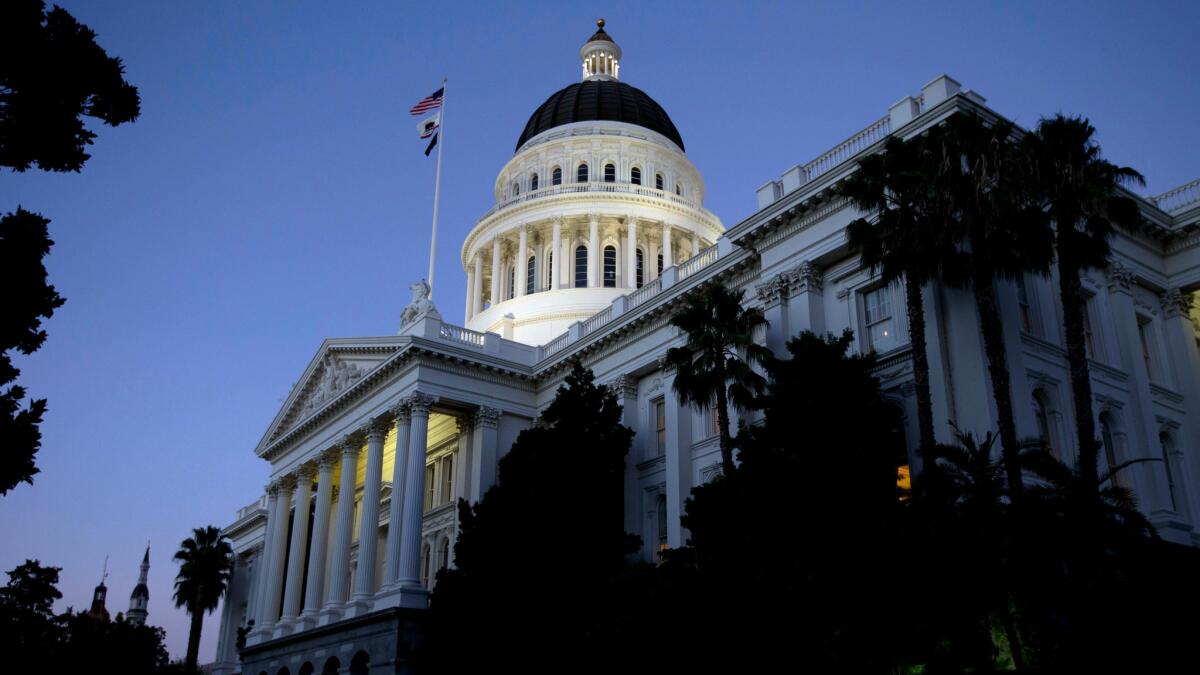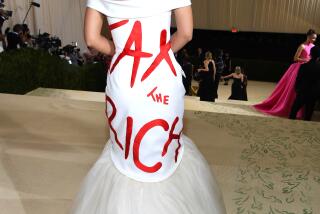Opinion: Before proposing a new wealth tax, maybe California should actually try studying it first

Trying to plug the enormous budget gap caused by the pandemic, some unions and their Democratic allies in the state Legislature recently proposed a hefty new tax on people with incomes over $1 million. The idea hasn’t exactly caught fire in Sacramento, however, so several of the bill’s backers offered a new option Thursday: taxing large accumulations of wealth.
The state already taxes at least two types of assets, property and vehicles (including boats). The new bill aims at everything else, and by everything, I mean that literally. The bill would apply a 0.4% tax to “all worldwide property,” excluding real estate owned directly, exempting the first $30 million (or $15 million for married taxpayers filing separately). And in addition to listing specific asset types that would be taxed, adds the category “other assets.”
I recognize that some of my colleagues here salivate at the idea of shaking down rich folks. I mean, none of us writers are that loaded, so why not? And a broad tax on assets, which a few other countries impose, could conceivably be a useful tool in a progressive tax system that seeks to narrow income inequality.
But my fellow editorial board members balked at the other last-minute effort to raise taxes on the rich, noting that “there’s simply not enough time to properly vet such a major tax change before the pandemic-shortened legislative session ends on Aug. 31.” (See? We have met a tax increase we didn’t like.) And that criticism goes double for the wealth-tax proposal.
For starters, the bill would not only tax whole classes of things that had previously gone untaxed, it would dun nonresidents who are outside the reach of the state’s income and business taxes. That’s because the tax would also be imposed on former residents who left within the past decade, presumably to catch those who fled the state’s income tax rates, which already are the highest in the country.
It also would apply the highest wealth-tax rate to anyone who’d spent a decade or more in California, a bizarre choice that would only increase the incentive for longtime residents to move out.
Then there are questions about how to value assets that aren’t on the market, such as a business you own that isn’t listed on the stock market. The bill calls on the Franchise Tax Board to come up with a way to value non-publicly-traded assets, yet the tax would go into effect immediately.
Nor is it at all clear how the state would enforce against the many, many ways that wealthy people would find to avoid the tax. The shifting of assets to global tax havens is an enormous problem for governments around the world, but it requires a concerted international effort to solve it. Meanwhile, the simplest way to avoid the new California tax would be to leave the state and then challenge California’s authority to tax nonresidents for assets moved elsewhere.
Perhaps more important, lawmakers are being asked to enact a major new tax without considering how it will interact with the other taxes on the books. Here’s just one question they’d need to study: By forcing people to sell assets potentially at a loss in order to pay their tax bills, will the measure cut into the capital gains revenue upon which California is inordinately dependent?
The point is, developing good tax policy requires more than just deciding which trees to shake. It’s looking at the whole forest of intertwined limbs, and figuring out how a measure aimed at one stand of trees will affect the others. It’s about balancing different types of taxes — those on income, consumption and wealth — to create the best incentives and place the lightest drag on the economy.
No question, the pandemic is causing real problems for California, despite the state’s painstaking efforts over the last decade to build up reserves and limit new commitments. But with the clock ticking down in this year’s session, it makes no sense for lawmakers to try to solve those problems by enacting a wholly new type of permanent tax with no study and no clue as to its potential unintended consequences.
More to Read
A cure for the common opinion
Get thought-provoking perspectives with our weekly newsletter.
You may occasionally receive promotional content from the Los Angeles Times.







